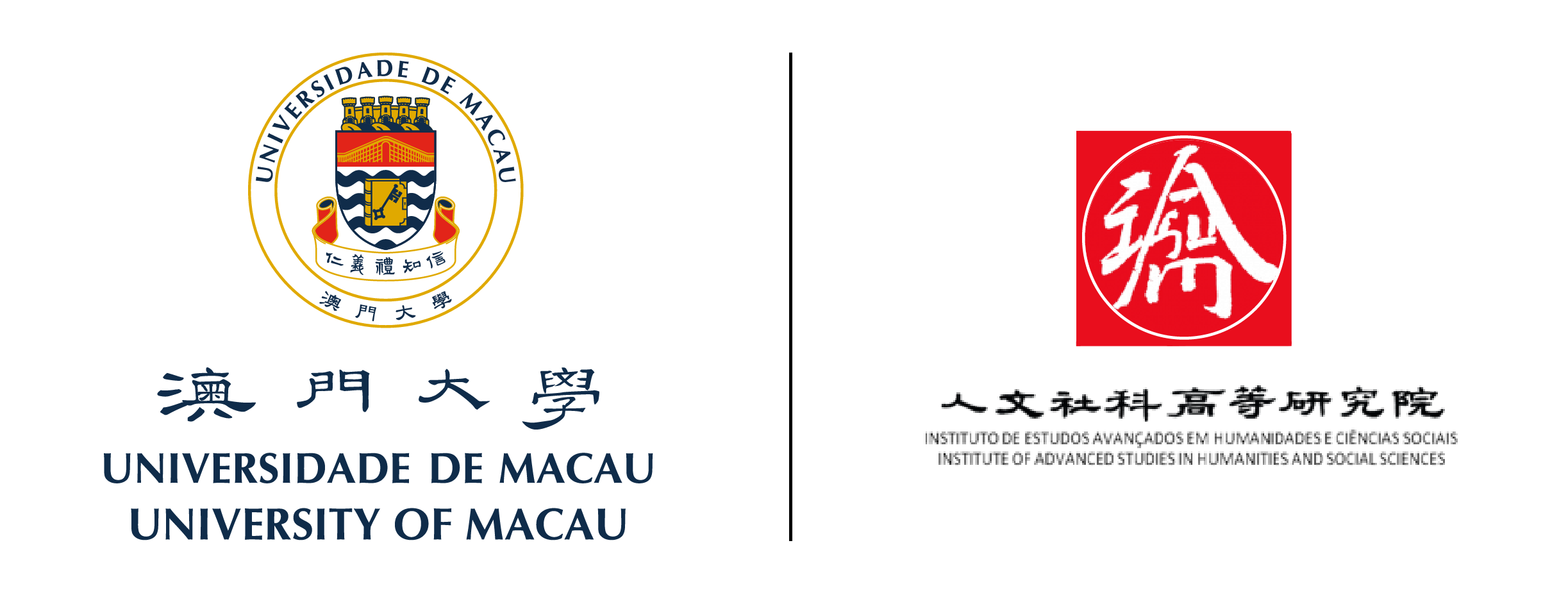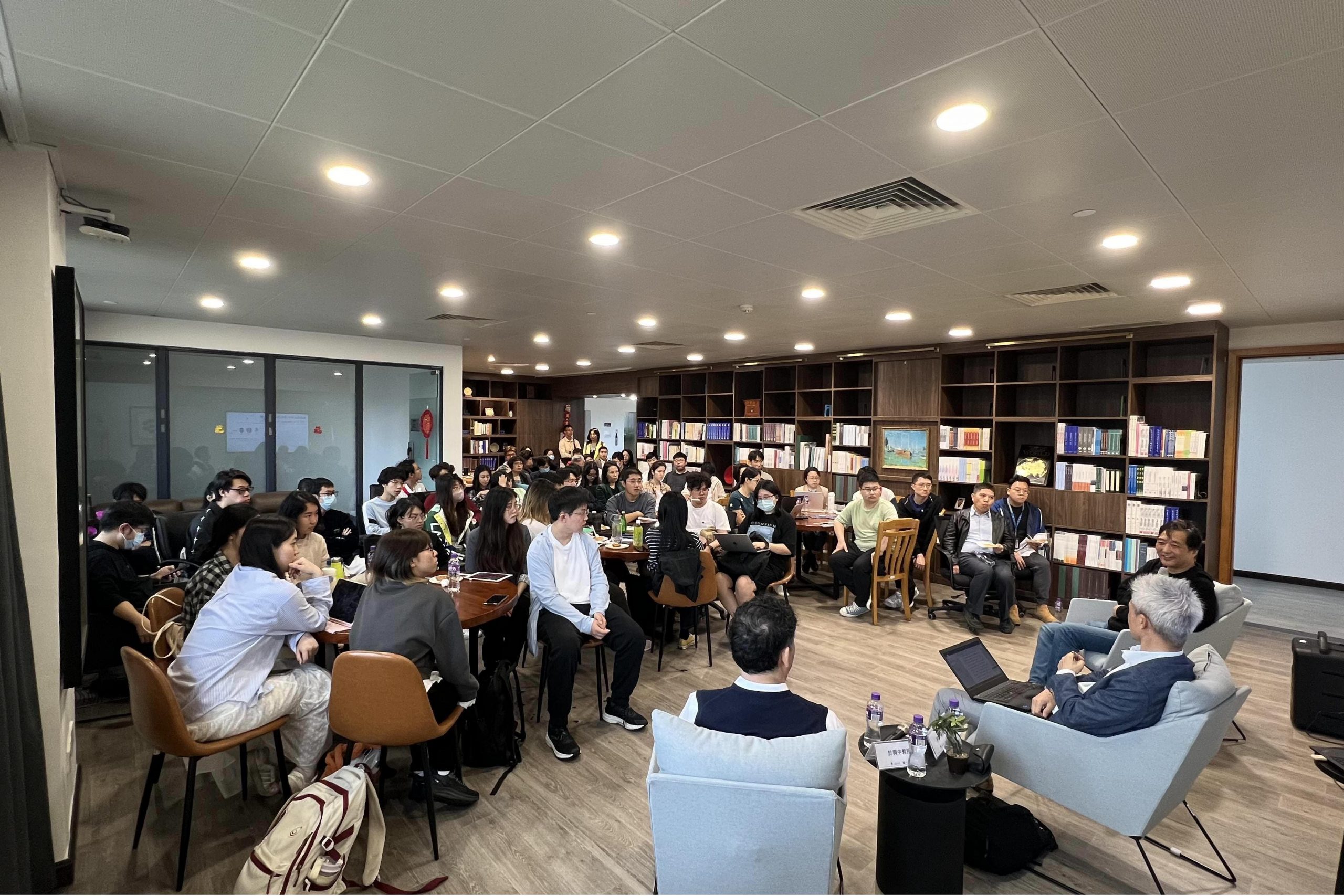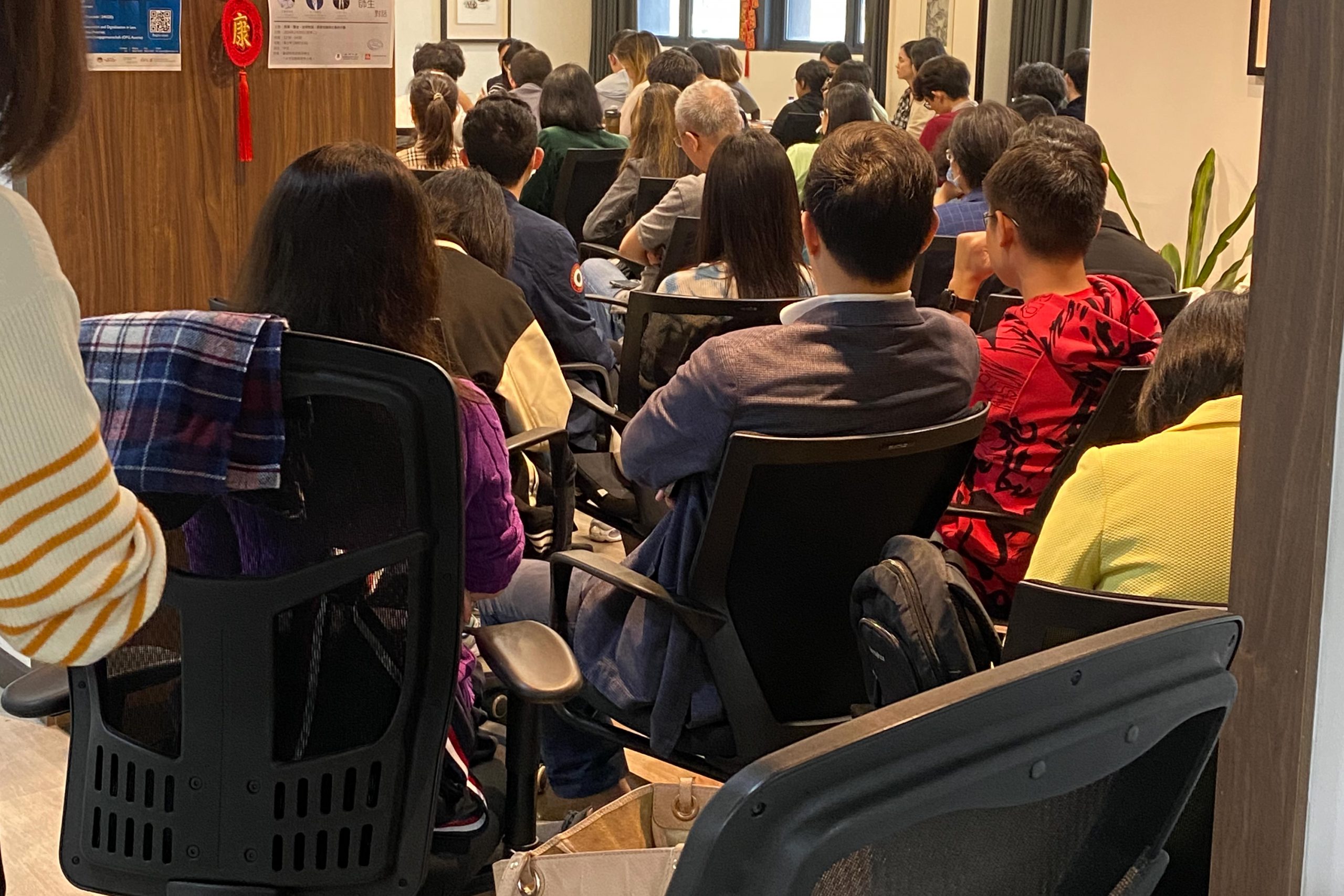
The IAS x Interdisciplinary Academic Salon-1 was successfully held by IAS on 20 February 2024 in the Common Room at the Cultural Building. The event focused on “Philosophy, History, and Law in Dialogue: Exploring the Intersection of Knowledge and Society.” It featured Professor Qingjie Wang, Associate Dean of FAH, Distinguished Professor of the Department of Philosophy and Religious Studies of FAH, Professor Shaoyang Lin, Head of Academic Programme and Publication of IAS and Distinguished Professor of the Department of History of FAH, and Professor Xingzhong Yu, Director of IAS and Chair Professor of FLL, as the speakers.
Professor Wang discussed the concept of Kin Concealment from a philosophical perspective, emphasizing how gaps in thoughts arise with changing times, prompting us to rethink fundamental concepts and potentially leading to different research outcomes. Professor Lin delved into the ancient tribute system by beginning with the concept of “ritual.” He pointed out that even though countries are not obligated to follow Confucianism, they still adhere to the system due to the existence of contracts, gradually transitioning to a more legal approach. Finally, Professor Yu referred to Xunzi’s idea of the combination of “propriety and law” and summarized that philosophy is the foundation of various disciplines, history is an integral part that cannot be ignored, and law is a practical discipline aimed at resolving issues fairly.
The Interdisciplinary Academic Salon, a new event series by the IAS, aims to enhance interdisciplinary research activities and connections among faculty and students. The event allows faculty and students to present their research findings and engage in discussions with professionals from different fields. The event aims to go beyond the limits of traditional disciplines and explore how different subjects can intersect and collaborate.
The integration of philosophy, history, and law is a broad and profound field. Through discussions on concealment, ritual, and the practical aspects of law, 60 faculty and students explored the connections and influences among these subjects. They shared valuable insights on the topics, collectively expanding the frontiers of academic research.




